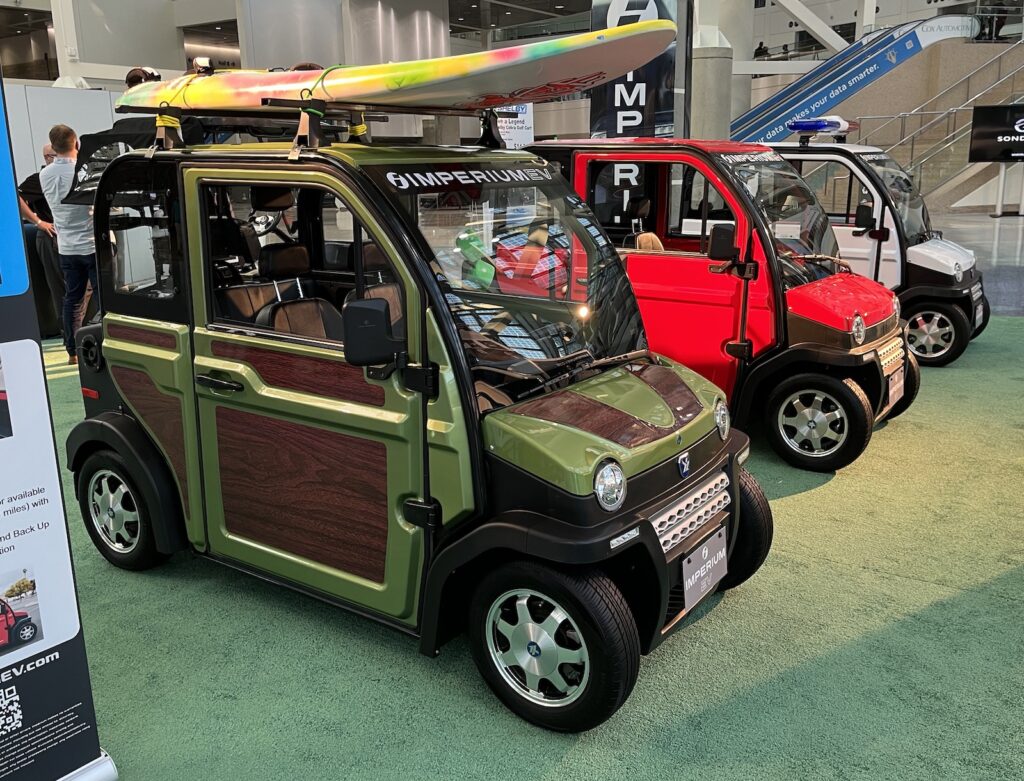
Elon Musk’s success with Tesla has inspired a slew of American entrepreneurs to establish automobile startups. But for every Rivian or Lucid, there’s a Lordstown Motors.
At the 2021 LA Auto Show this week, the show floor was populated by names you’ve never heard of, hawking vehicles you’ve likely never seen before. TheDetroitBureau.com took close look at the and, with the exception of Bremach, all are producing and or selling battery electric vehicles.
Given that established OEMs are just beginning to sell their own EVs, it remains to be seen how many of these makers will succeed. Nonetheless, here are the newest names soon to be competing for customers.
Bremach: Back from the USSR
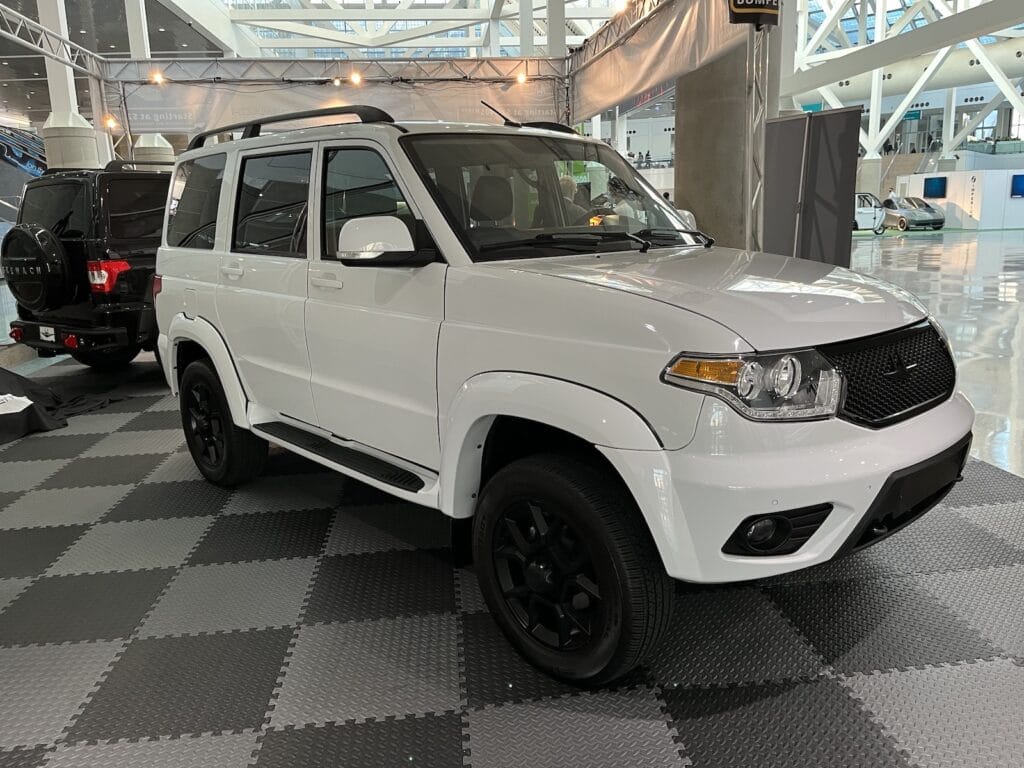
This California-based company is looking to sell the Russian-built UAZ Patriot under the Bremach name, as UAZ doesn’t translate well in English. Introduced in Russia in 2005, the gas-powered Bremach employs solid axles front and rear, four-wheel drive with a 2-speed Borg Warner transfer case, and a Bosch traction control system. It’s powered by a 2.7-liter inline 4-cylinder engine mated to a GM 6-speed automatic transmission residing in a ladder-type chassis.
“This is equivalent of Jeep Rubicon, but a Jeep Wrangler Rubicon is $54,000, and this one is $26,000,” said Ray Hoogenraad, Bremach’s chief executive officer. “It’s fully loaded. It’s got an air-conditioned glovebox, it’s got a heated windshield, heated steering wheel, heated seats, heated rear seats, air conditioning, electric windows; $26,400 and it’s got a 10-year warranty.”
The Bremach’s boxy shape creates a roomy interior, although the décor is fairly spartan. Switchgear seems to come from 15-year-old GM products and the doors feel lightweight and tinny. But this is a fully-loaded midsize two-row SUV for the entry price of a compact SUV.
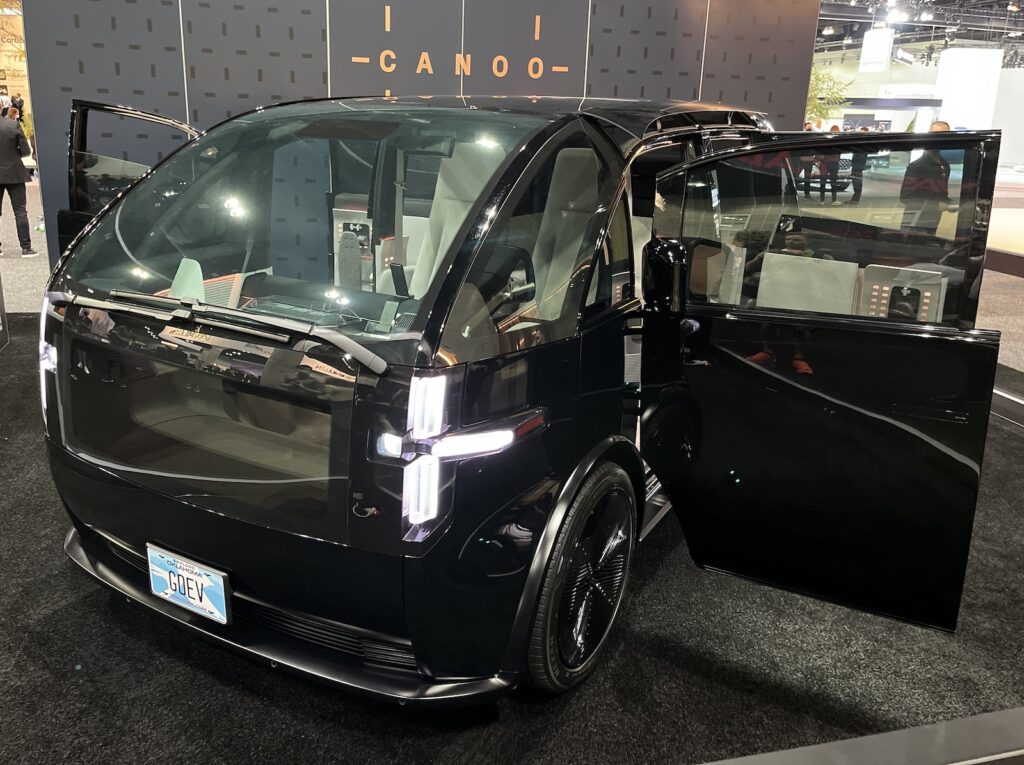
Hoogenraad says the company has signed up dealers mostly on the East Coast, as well as in Texas, and Southern Southern California. There’ll be parts distribution facilities in Florida, Boston and Southern California. The company says that the vehicle will go on sale in the first quarter of 2022.
Canoo: very much the Arkansas traveler
Looking much like a modern-day version of Buckminster Fuller’s Dymaxion, Texas-based Canoo displayed a lozenge-shaped minivan designed in-house by Richard Kim best known for designing the BMW i3.
Dubbed a lifestyle vehicle, the automaker plans for it to go on sale in the third quarter of 2022. The company is targeting the vehicle to have a 250-mile range and as much as 350 horsepower with front-wheel or all-wheel drive. Look for prices to start at $34,750.
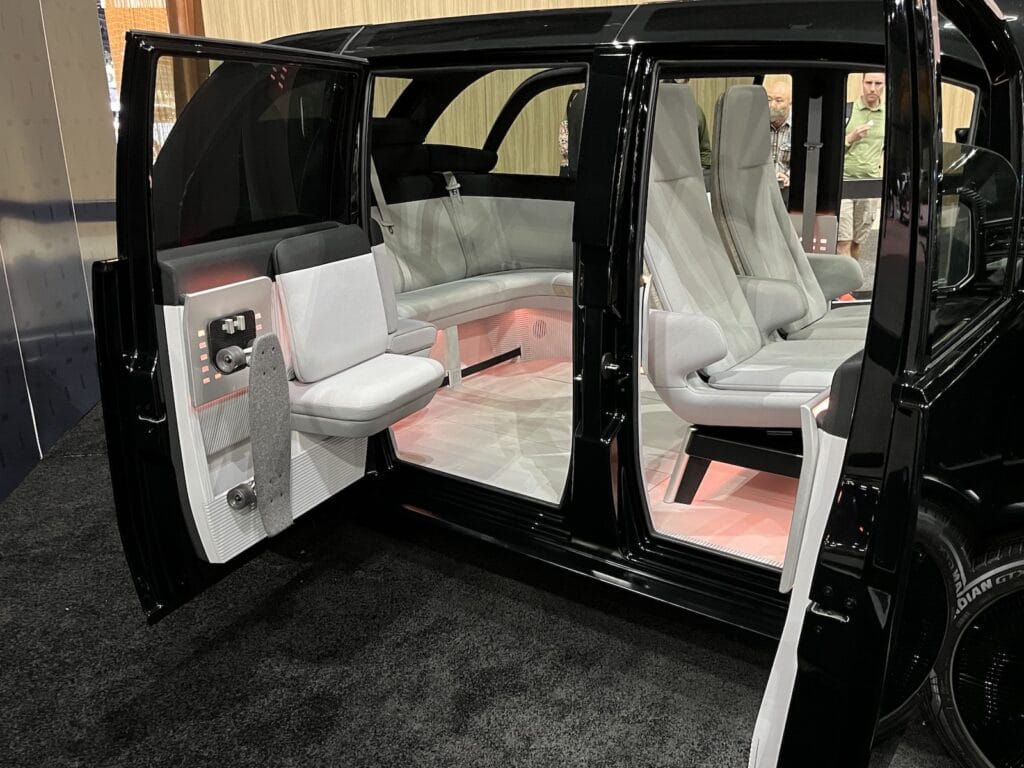
Canoo’s van seats seven in a unique rear bench seat that curves around the back of the cabin, along with individual seats mounted on each rear door. Next to these seats on each door is a pegboard that allows you to customize the interior by attaching accessories to it.
The vehicle also employs drive by wire and steer by wire, allowing the company to dispense with a traditional steering column and open up the space typically occupied by an instrument panel.
Founded in 2017, Canoo is based near Dallas, but the company announced this week that it be opening up a new corporate office in Bentonville, Arkansas. The company’s design and engineering office is in Torrance, California, with manufacturing located in Pryor, Oklahoma.
Look for the company to use this vehicle’s platform for a pickup truck and multi-purpose delivery vehicle. “We really focus on being American made,” said a company spokesman. “We are a car built for the American market and want to bring as much to the American economy as possible.”
Edison Future: picking up customers in 2025
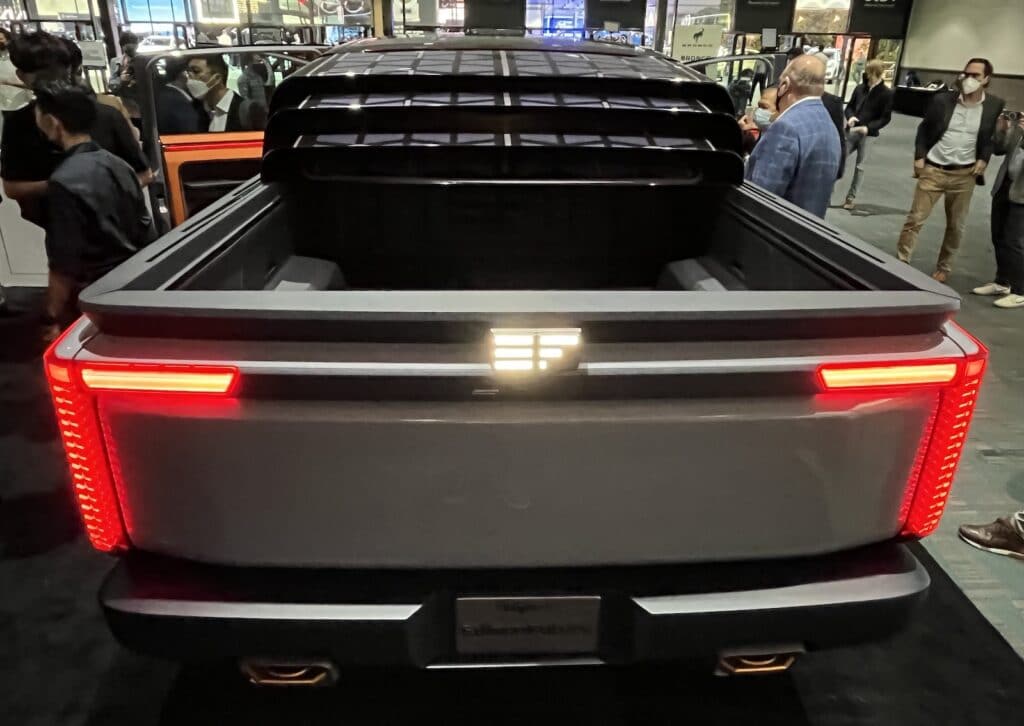
Edison Future is a subdivision by Phoenix Motorcars, which was founded in 2003 with the intention of producing electric SUVs. But the financial crisis led the company to file for bankruptcy in 2008.
Bought by a Dubai company shortly thereafter, the firm transitioned to manufacturing electric drive systems for ICE vehicle conversions. Still an ongoing line of business, it gave the company the experience needed to build a full EV, according to Tarek Helou, chief operating officer of Phoenix Motorcars.
Phoenix was acquired solar power company SPI in 2019 with the intention of leveraging Phoenix’s expertise to build their own pickup tricks and commercial/passenger vans. The company is focusing on Class 3-to-six passenger and commercial vans, as well as Class 2 pickups.
Edison Future unveiled its sleek battery electric pickup truck prototype that it plans to sell in 2025. Given the far-off production date, specifics about the vehicle’s range, power, and payload haven’t been finalized. The company began work on the pickup in 2019, with help from Icona Design Group.
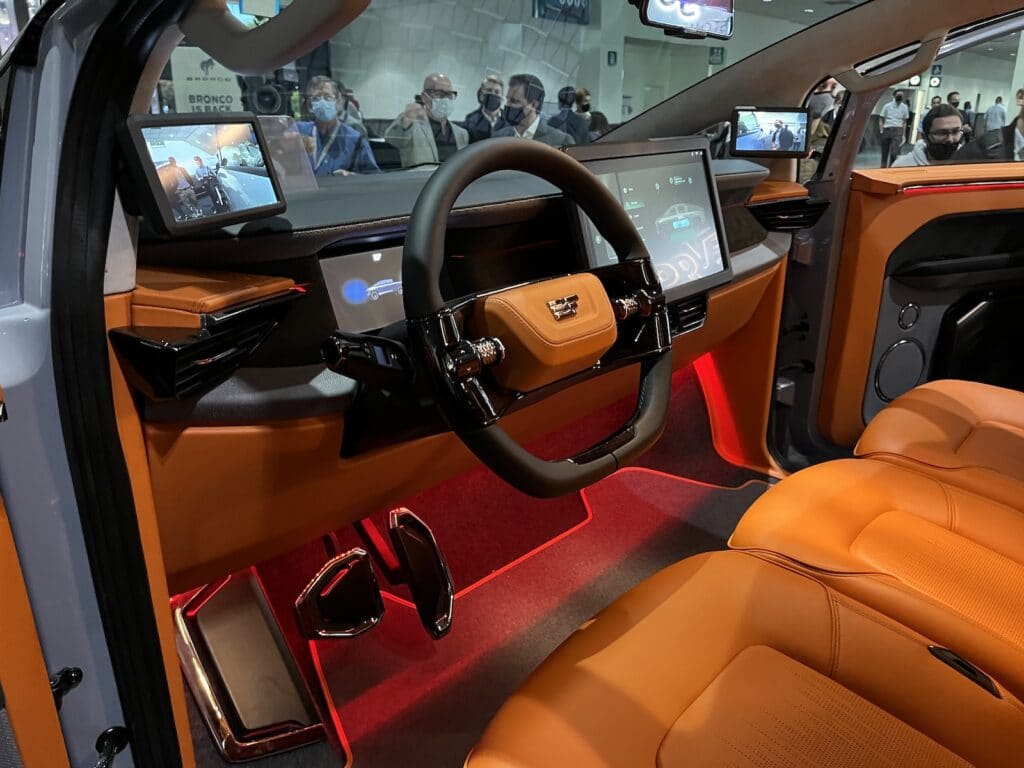
“We’re looking at top of the line in terms of efficiency, and battery range,” said Helou. “We’re going to pre-launch and listing some of the features very shortly on the Edison Future website.”
Built atop a skateboard platform, this pickup is designed with solar roof panels that can extend the vehicle’s range by as much as 15% depending on the weather. The truck’s sleek lines, futuristic lines are far more sophisticated that Tesla’s Cybertruck, and is accented with the company’s initials in the front grille. Side-mounted cameras replace traditional side mirrors, displaying the side view on monitors mounted on each of the vehicle’s a-pillars. Inside, the center of the bench seat backrest folds to become a console.
The company has offices in Santa Ana and Anaheim, California and is looking for manufacturing facilities in the Midwest and in California.
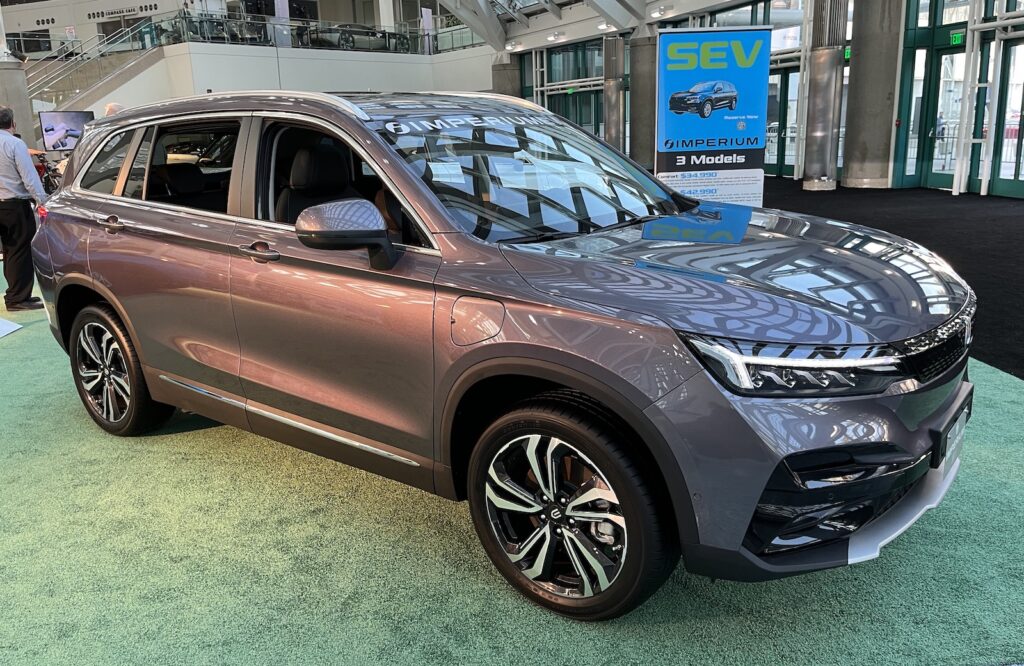
Imperium: Importing SUVs from China
Imperium Motors is a 1-year-old Canadian company owned by Canadian-based DSG Global that imports EVs, most of them manufactured in China, with some produced in Australia and Sweden. Initially, Imperium will be importing vehicles built by Skyworth, one of the largest manufacturers of electronics in China as well as one of the largest manufacturers of commercial electric vehicles, such as buses, delivery and cargo vans.
For consumers, the company plans to offer the Skywell SUV, in Comfort, Premium and Limited trim, with prices starting at $34,990 to $48,990 depending on model. The base Skywell Is a single motor model with 204 horsepower powered by a 55-kWh battery and an estimated range of 255 kilometers. Premium and Limited models get a larger 72-kWh battery, 323 miles of range and a 12.3-inch color touchscreen in place of the 8-inch screen used in the Base.
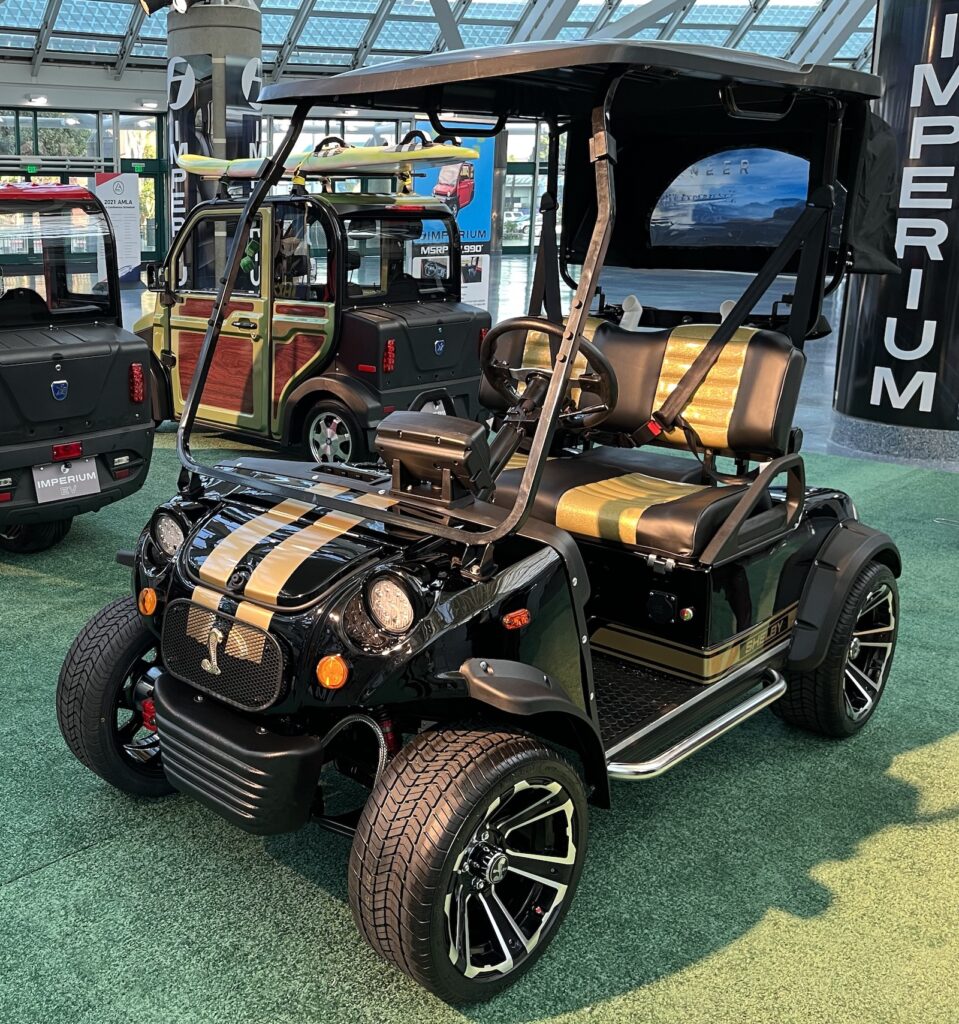
The company will also field the Terra-e midsize pickup truck also built in China. Offered with rear- or all-wheel drive, it will come in two- and four-door configurations, as well as a van similar to the Ford Transit, with the latter two going on sale before the Skywell SUV arrives in the U.S. The vehicles displayed were European production units.
The company has signed three dealers in Quebec, and is in the process of signing more, including in the U.S., with sales slated to start in January, officials noted.
Imperium is also planning to sell small three- and four-wheeled low speed EVs through a separate retail channel at existing motorbike and power sports dealers. Made by Chinese manufacturer Jonway, vehicle’s such as the Jonway Urbee, base price $8,890, these street-legal tiny transports have a top speed of 25 mph, although they are designed for final mile deliveries or maintenance/security vehicles in gated communities, among other uses.
Overseas, in places like Bangladesh, they are used as taxis. Imperium is also selling an officially licensed Shelby Cobra golf cart powered by a 6.3kWh AC motor and hydraulic brakes. Given its power, this Cobra comes with LED lights, parking brake, a 9-inch Bluetooth touchscreen and three-point safety belts at a price of $14,950.
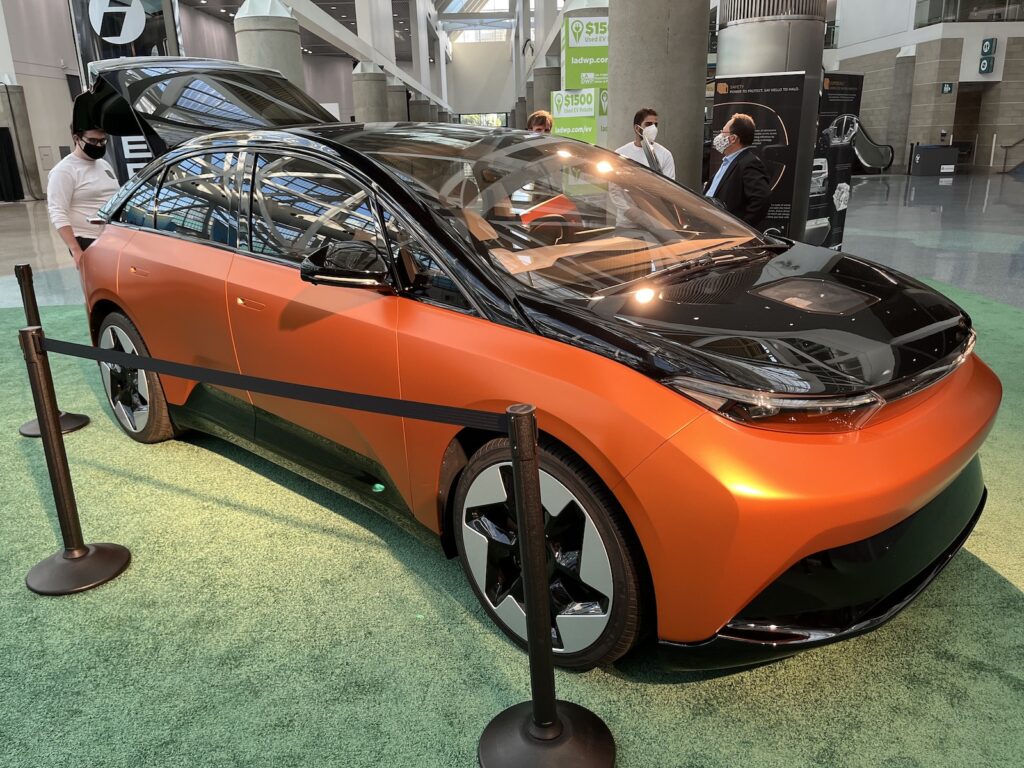
Indi EV: another small Sunshine State EV start-up with big dreams
After four years of work, Los Angeles-based company Indi displayed the Indi One, a five-door sedan with a rounded greenhouse and two-tone paint. Under its modern exterior resides an electric driveline powered by a 95kWh battery that produces 410 horsepower and boasts an estimated range of 300 miles.
The company says it is the first automaker to integrate a Windows Huawei computer in a car that uses an open-source platform, so that software developers can create their own in-car experience. The computer can be accessed through a 22-inch screen mounted in front of the passenger. The center-mounted 22-inch screen is controlled by traditional infotainment software while the instrument cluster features digital gauges.
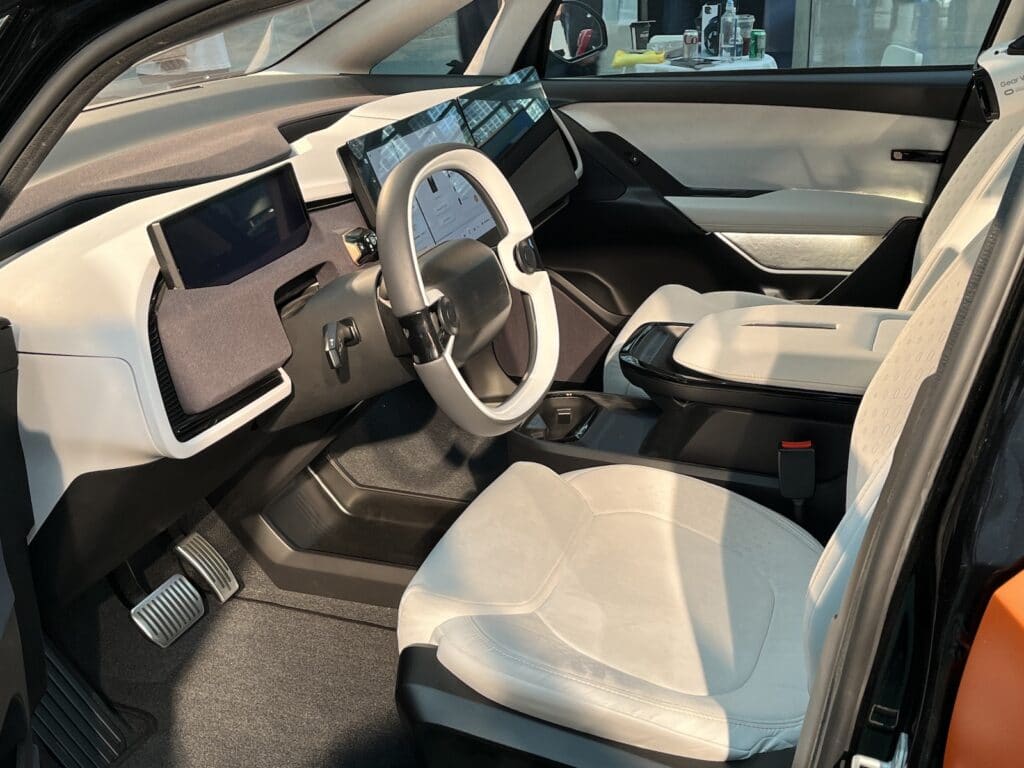
The cabin is designed for family-friendly flexibility, with cargo space hidden under the second row, which slides forward and back. Also, Indi equipped it with a back seat monitor so that parents in the front row can easily keep an eye on their children. For the trunk, the company offers a variety of accessories that can be 3-D printed, including the shelf shown on the show vehicle that can be used as a seat or a workstation. Other items that can be fitted include a cage for pets or a refrigerator.
The company sources its parts globally, but it will be built in the U.S. Indi expects production to begin at the end of 2022, with pre-orders opening up in early 2022. Cars will be distributed through Imperium dealers with prices starting at $45,000 — cheaper than one Bitcoin.
Mullen: culling talent from the world’s finest automakers
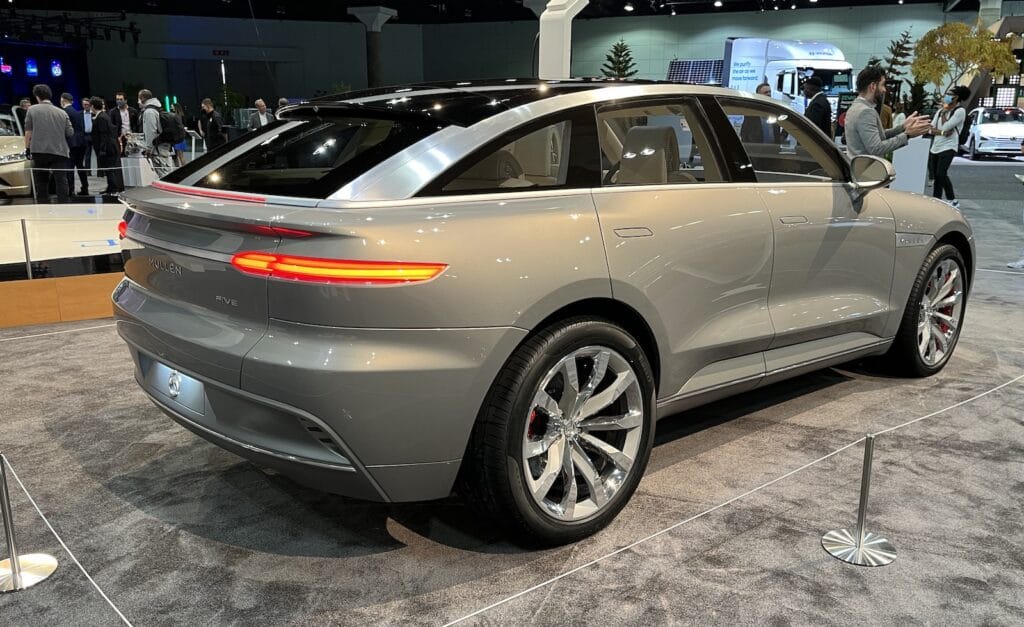
With great bravura, David Michery, CEO and chairman of Mullen Automotive, introduced its first vehicle, the Mullen Five EV crossover at the L.A. auto show Wednesday.
The car was designed over the past year by Thurner Design, whose president, Andreas Thurner, designed the Rolls-Royce Ghost. For the Mullen Five, Thurner was given complete control. What he created is a sleek, smooth design with an arched greenhouse that seems more like a bulked-up sports car than an off-road warrior. But the Mullen Five’s design is crafted by those who worked for Bugatti, Lamborghini, Porsche, Bentley and Rolls-Royce.
“This is one of the finest teams in the world,” Thurner said, adding, “We were asked to come up with something breathtaking.”
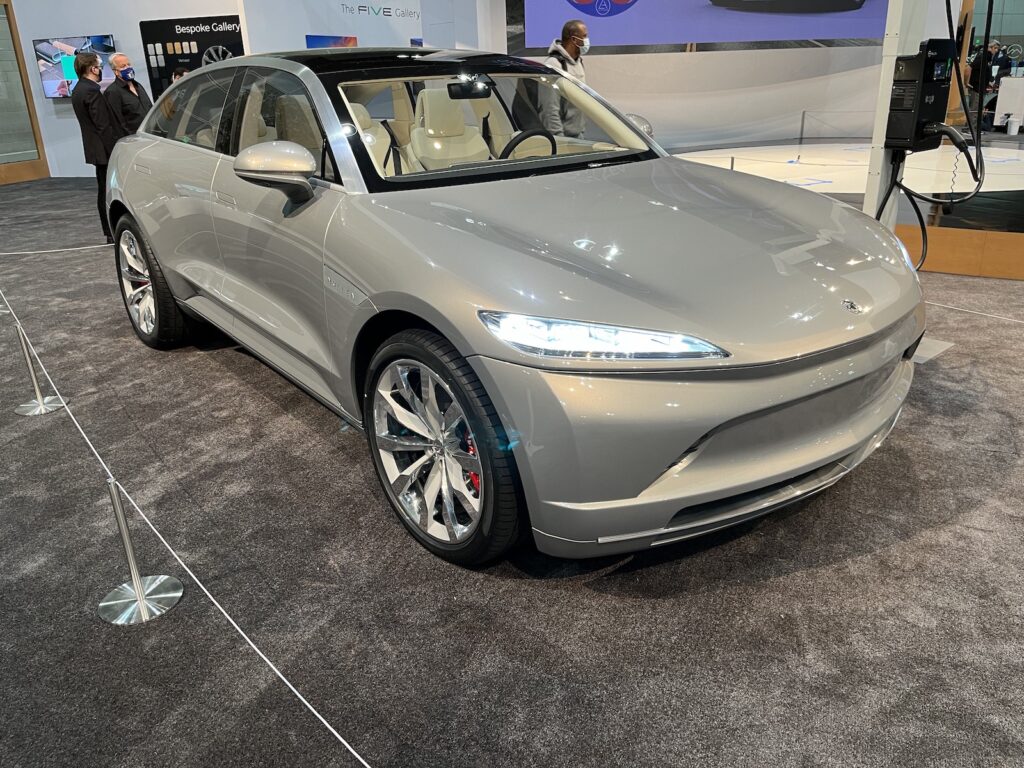
But the numbers tell an equally compelling story. The Mullen Five’s dual motor driveline is capable of running of 0-to-60 in 3.2 seconds, has a 155-mph top speed, an estimated range of more than 325 miles from a 95-kWh battery pack, and is able to recharge up to 80% in less than 20 minutes. But that’s just the base model.
At its most extreme, the automaker is promising its top-of-the-line ERS model will reach 60 mph in 1.9 seconds and possess a top speed of more than 200 mph, thanks to its extensive use of carbon ceramic composite materials to reduce weight. Thankfully, ceramic rotors and brakes will be available, as will 23-inch wheels.
The company plans to build the Mullen Five at its existing 127,000 square foot facility in Tunica, Mississippi, where it is adding 1.2 million square feet for a body shop and general assembly.
The vehicle’s distinctive feature is the camera and monitor incorporated into the B-pillars, which the company calls the Personal Vehicle Assistant that not only lights up the vehicle, adjusts everything to your settings and unlocks the door, it also starts the car.
Prices will start at $55,000, with four-seat Touring models starting at $75,000 before federal tax credits. Vehicles will come with a 60-month/60,000-mile warranty, while the battery pack comes with a 10-year warranty. And all owners have access to Mullen Home Assist, which will assist customers in having a Level Two Charger installed in their home.







